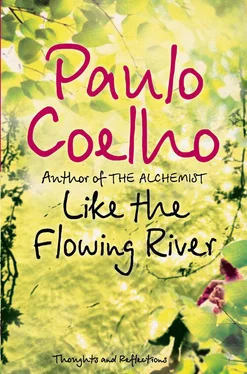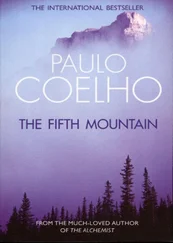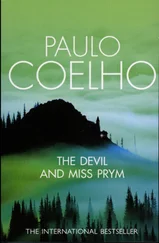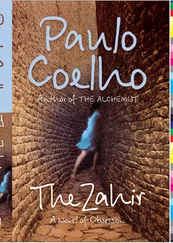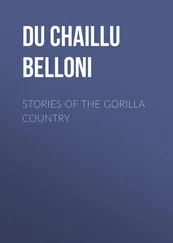(h) There is only one book that arouses the unanimous admiration of the writer and his peers: Ulysses by James Joyce. No writer will ever speak ill of this book, but when someone asks him what it’s about, he can’t quite explain, making one doubt that he has actually read it.
Armed with all this information, I went back to my mother and explained exactly what a writer was. She was somewhat surprised.
‘It would be easier to be an engineer,’ she said. ‘Besides, you don’t wear glasses.’
However, I did already have the untidy hair, a packet of Gauloises in my pocket, the script of a play under my arm ( The Limits of Resistance , which, to my delight, a critic described as ‘the maddest thing I’ve ever seen on stage’); I was also studying Hegel and was determined, somehow or other, to read Ulysses. Then a rock singer turned up and asked me to write words for his songs, and I withdrew from the search for immortality and set myself once more on the same path as ordinary people.
This path took me to many places and caused me to change countries more often than I changed shoes, as Bertolt Brecht used to say. The pages that follow contain accounts of some of my own experiences, stories other people have told me, and thoughts I’ve had while travelling down particular stretches of the river of my life.
These stories and articles have all been published in various newspapers around the world and have been collected together at the request of my readers.

At the moment, my life is a symphony composed of three distinct movements: ‘a lot of people’, ‘a few people’, and ‘almost no one’. Each of them lasts about four months of the year; and although there is often a little of each during one particular month, they never get confused.
‘A lot of people’ is when I’m in touch with the public, with publishers and journalists. ‘A few people’ happens when I go back to Brazil, meet up with old friends, stroll along Copacabana beach, go to the occasional social event, but mostly stay at home.
What I want to do today, though, is to talk a little about the ‘almost no one’ movement. Right now, night has fallen on the two hundred inhabitants of this Pyrenean village, whose name I prefer to keep secret and where, a short while ago, I bought a converted mill. I wake every morning at cock-crow, have breakfast, and go out for a walk amongst the cows and the sheep and the fields of maize and hay. I look at the mountains and – unlike during the ‘a lot of people’ movement – I never think about who I am. I have no questions and no answers; I live entirely in the present moment, knowing that the year has four seasons (yes, I know this may seem obvious, but we do sometimes forget), and I transform myself just as the countryside does around me.
At the moment, I’m not much interested in what’s going on in Iraq or in Afghanistan: like anyone else living in the country, the most important news is the weather forecast. Everyone who lives in the small village knows whether it’s going to rain, whether it will be cold or very windy, since this directly affects their lives, their plans, their harvests. I see a farmer working in his field. We wish each other ‘Good morning’, discuss the likely weather, and then go on with what we were doing – he with his ploughing, me with my long walk.
I come back, look in the letter-box, and there’s the local newspaper: a dance in the neighbouring village; a lecture in a bar in Tarbes – the nearest big city with its forty thousand inhabitants; last night, the fire brigade was called out because a litter bin was set on fire. The subject agitating the region at the moment is a group thought to be responsible for cutting down a line of plane trees along a country road because they blame the trees for the death of a motorcyclist. This news takes up a whole page, and there are several days’ worth of articles about the ‘secret cell’ that wants to avenge the boy’s death by destroying the trees.
I lie down by the stream that runs past the mill. I look up at the cloudless sky in this terrifying summer, during which the heatwave has killed five thousand in France alone. I get up and go and practise kyudo, a form of meditation through archery, and this takes up another hour of my day. It’s lunchtime now; I have a light meal and then, in one of the other rooms in the old building, I suddenly notice a strange object, with a screen and a keyboard, connected – marvel of marvels – by a high-speed line, also known as a DSL. I know that the moment I press a button on that machine, the world will come to meet me.
I resist as long as I can, but the moment arrives, my finger presses the on-switch, and here I am again connected with the world: Brazilian newspapers, books, interviews to be given, news about Iraq, about Afghanistan, requests, a note that my plane ticket will arrive tomorrow, decisions to be postponed, decisions to be taken.
I work for several hours, because that is my choice, because that is my personal legend, because a warrior of light knows that he has duties and responsibilities. But during the ‘almost no one’ movement, everything on the computer screen seems very far away, just as this mill seems like a dream when I’m caught up in the other movements – ‘a lot of people’ and ‘a few people’.
The sun is setting. I switch the computer off again, and the world goes back to being the countryside, the smell of grass, the lowing of cattle, the voice of the shepherd bringing his sheep back to the pen beside the mill.
I ask myself how I can exist in two such different worlds in one day. I have no answer, but I know that it gives me a great deal of pleasure, and that I am happy while I write these lines.
Prepared for Battle, But With a Few Doubts
I’m wearing a strange green outfit, full of zips, and made from a very tough fabric. I have gloves on, too, in order to avoid cuts and scratches. I’m carrying a kind of spear, almost as tall as I am. The metal end has three prongs on one side, and a sharp point on the other.
And before me lies the object of my attack: the garden.
With the spear in my hand, I start to remove the weeds growing amongst the grass. I do this for quite a while, knowing that each plant I dig up will die within two days.
Suddenly, I ask myself: am I doing the right thing?
What we call a ‘weed’ is, in fact, an attempt at survival by a particular species that took Nature millions of years to create and develop. The flower was fertilized at the expense of innumerable insects; it was transformed into seed; the wind scattered it over the fields round about; and so – because it was not planted in just one place, but in many – its chances of surviving until next spring are that much greater. If it was concentrated in just one place, it would be vulnerable to being eaten, to flood, fire and drought.
But all that effort to survive is brought up short by the point of a spear, which mercilessly plucks the plant from the soil.
Why am I doing this?
Someone created this garden. I don’t know who, because when I bought the house, the garden was already here, in harmony with the surrounding mountains and trees. But its creator must have thought long and hard about what he or she was doing, must have carefully planted and planned (for example, there is an avenue of trees that conceals the hut where we keep the firewood) and tended it through countless winters and springs. When I moved into the old mill – where I spend a few months of each year – the lawn was immaculate. Now it is up to me to continue that work, although the philosophical question remains: should I respect the work of the creator, of the gardener, or should I accept the survival instinct with which nature endowed this plant, which I now call a ‘weed’?
Читать дальше
